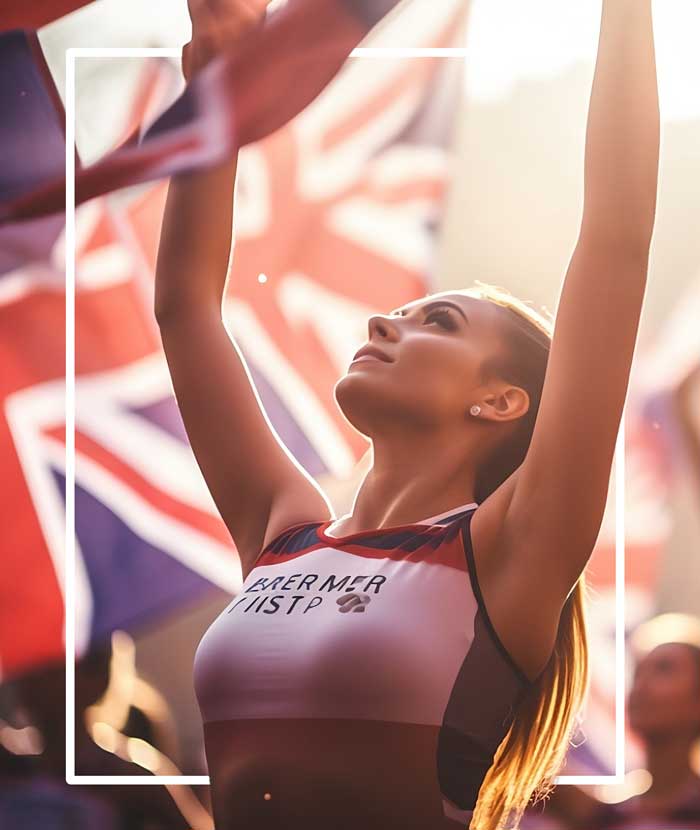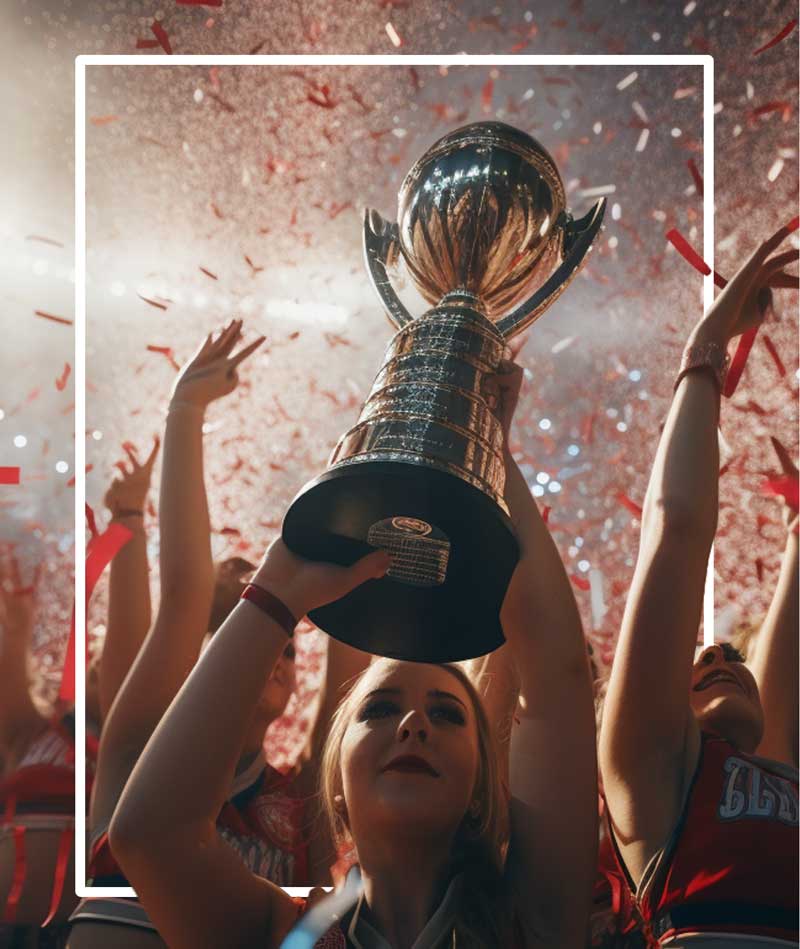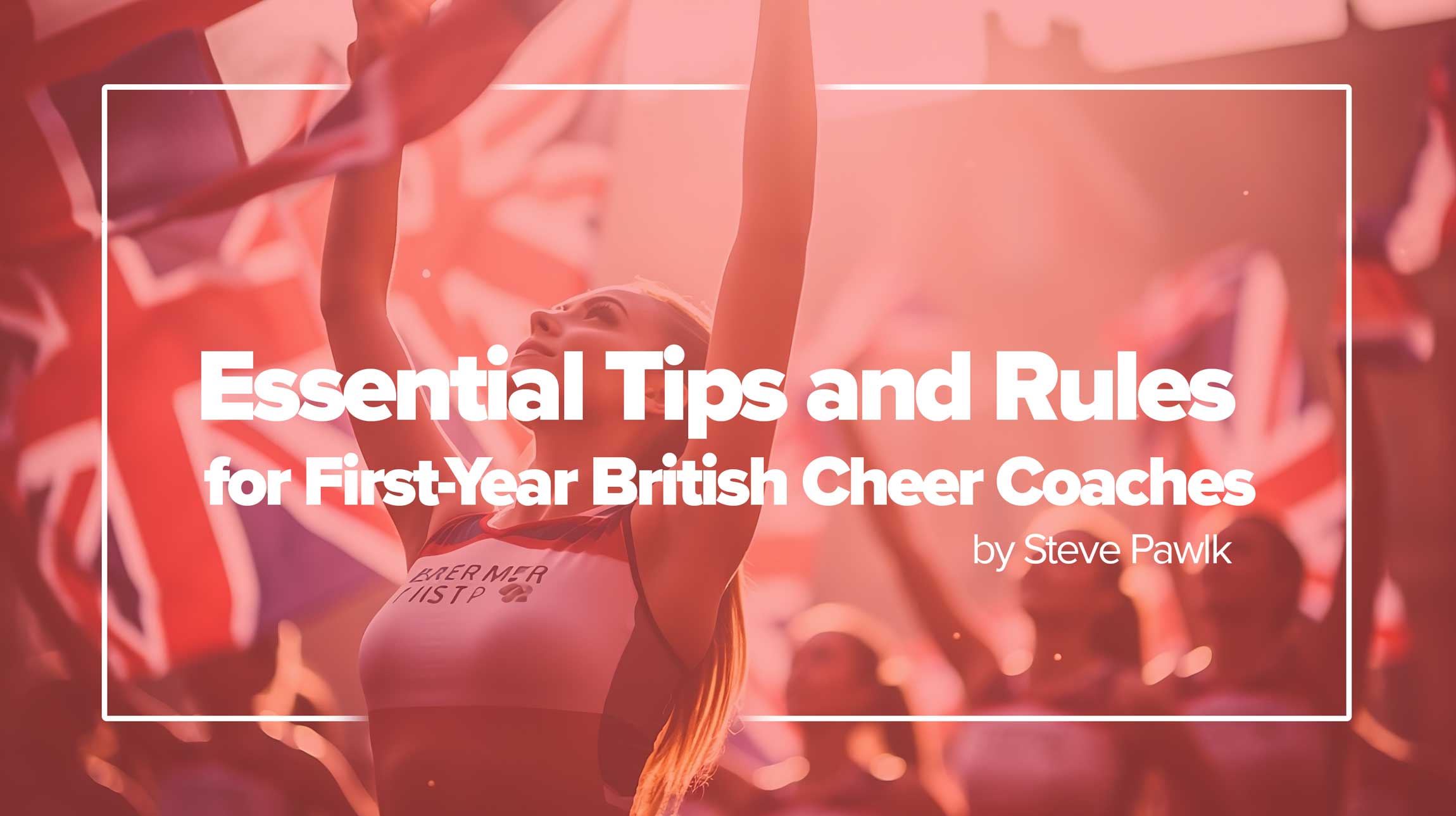By Steve Pawlyk
Published June 23, 2023
Cheerleading is an art and sport that fosters unity, promotes physical fitness, and instils a sense of leadership among participants. If you’re a first-year coach of a British cheer team, you might find the role challenging yet rewarding. This blog post is your handy guide, brimming with advice, tips, and insights into the rules specific to cheerleading in the United Kingdom
1. Understanding the Basics of Cheerleading
2.Ensuring Athlete Safety

3. Encourage and Motivate
4. Teaching Teamwork
5. Understanding Cheer Rules Specific to the UK

As Vince Lombardi once said, “”Coaches who can outline plays on a blackboard are a dime a dozen. The ones who win get inside their player’s heads.” Embrace this philosophy, and you’re already halfway to success.
6. Continuous Learning
7. Focusing on Fitness





